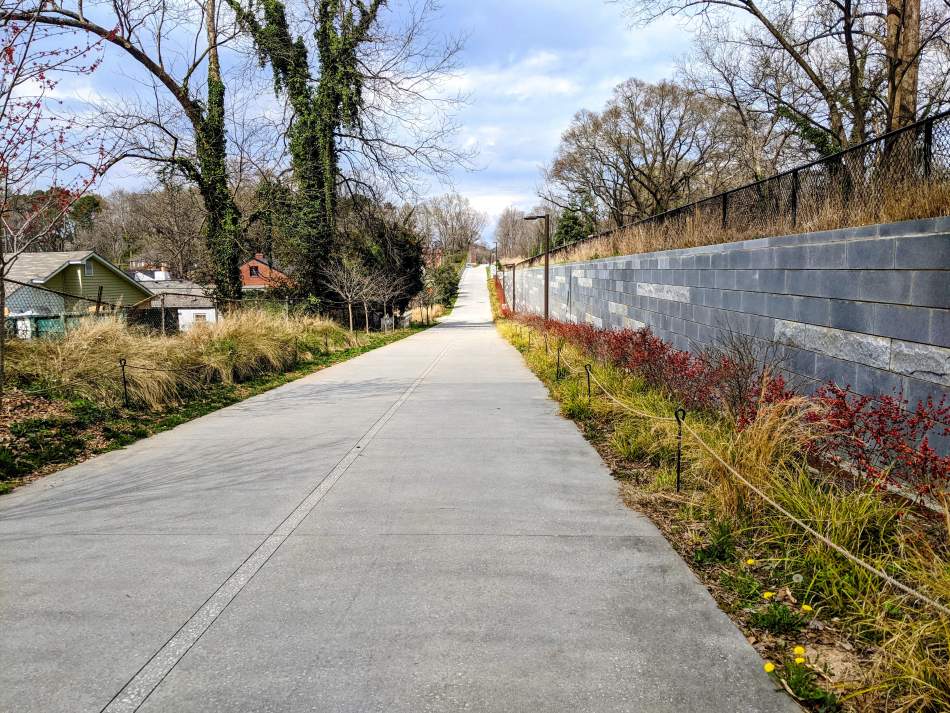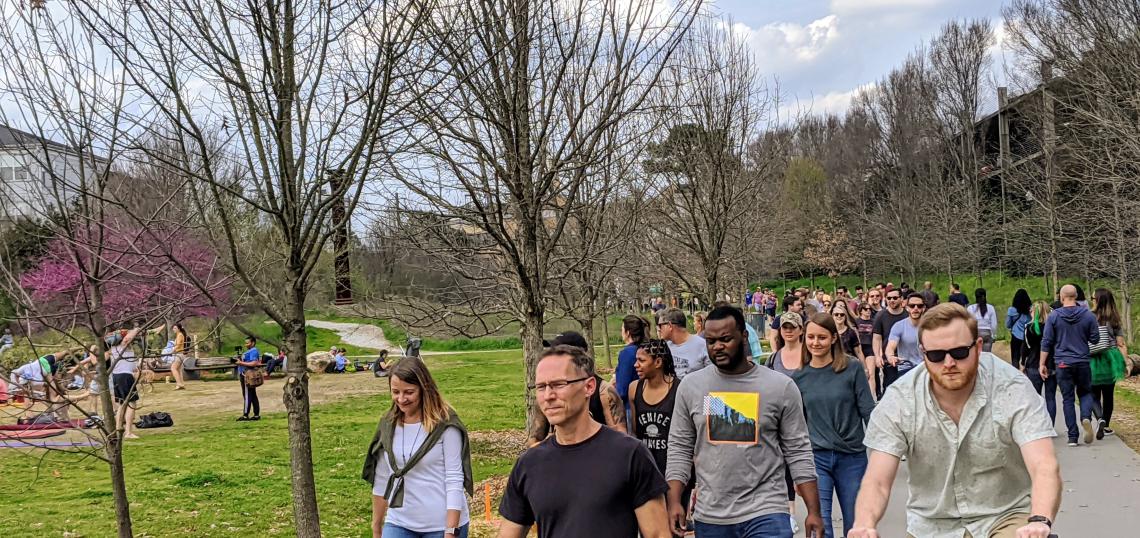Despite opposition from an alliance of metro Atlanta apartment complex owners, purveyors of dive bars, government leaders, and various other groups, an additional tax for commercial property owners near the BeltLine is coming this year.
The Atlanta City Council on Monday night green-lighted the implementation of the BeltLine Special Service District, a half-mile zone around the 22-mile loop where a tax bump will be implemented to raise an expected $100 million for finishing BeltLine construction.
Tax increases will apply to areas with trails both finished and not.
Atlanta Mayor Keisha Lance Bottoms, an SSD supporter since the idea surfaced publicly in January, noted the “tremendous benefits for businesses and property owners” the BeltLine has already provided along finished trails. Now, per the mayor, the SSD will “help give communities throughout the city the opportunity to enjoy the benefits associated with the closing of the loop,” Bottoms said in a prepared statement after Monday’s vote.
The ordinance notes the $100 million the SSD is expected to generate is “urgently needed” to complete BeltLine trail corridors before the December 2030 expiration of the BeltLine’s Tax Allocation District, the insufficient funding mechanism to date.
Finishing everything from design work and utility relocation to the installation of security cameras is expected to cost roughly $350 million.
Beyond the SSD’s $100-million boost, the BeltLine says $100 million will come from the existing TAD, with local, state, federal, and especially philanthropic sources—who haven’t been publicly identified yet—footing the remaining $150 million.
Councilmember Dustin Hillis (District 9) introduced the SSD legislation after growing frustrated with lack of BeltLine progress in his northwest Atlanta district.
Hillis previously told Urbanize Atlanta the tax bump will equate to roughly an extra two-tenths of a penny per dollar in assessed property value. That’d be about $800 annually for every $1 million a restaurant building, gas station, apartment complex, or other business is deemed to be worth. Condo, townhome, and single-family homeowners are exempt.
Like other detractors, heads of the Atlanta Apartment Association, a metro-wide group with 1,450 member companies that control 430,000 rentals, argued that tax hikes for multifamily property owners will only trickle down to renters—a population segment disproportionately struggling with job losses and other pandemic misfortunes.
But the positives of a finished BeltLine, proponents have said, far outweigh rent hikes that will be relatively minor.
 The BeltLine's quieter Westside Trail this month; above, the popular Eastside Trail last March. Josh Green/Urbanize Atlanta
The BeltLine's quieter Westside Trail this month; above, the popular Eastside Trail last March. Josh Green/Urbanize Atlanta
Those perks include an estimated 50,000 permanent jobs associated with the BeltLine, $50 million in additional affordable housing funds, and $12.5 million to help keep “legacy residents”—longtime citizens who’ve typically ridden through a neighborhood’s ups and downs—from being pushed out by rising prices.
Following the council’s actions Monday, the SSD is “in full force and effect immediately,” per the ordinance. The property tax increase is expected to be seen on bills issued this fall.
The city auditor’s office, per the ordinance, will review the SSD’s financials every two years moving forward.
As part of Monday's vote, the council approved an agreement with Invest Atlanta to issue bonds for the SSD. Exactly which trail sections might see SSD-funded construction first remains to be seen.
The BeltLine has compiled a new detailed map that shows which commercial parcels are included in the BeltLine tax zone. It allows anyone to punch in their business or apartment building address to see if it falls within the half-mile SSD on either side of trail segments.
Also on Monday, the city council adopted legislation aimed at mitigating the ills of gentrification around forthcoming Westside Park, a magnet for investment where the mayor’s moratorium on development is set to expire this month.
The legislation, also introduced by Hillis, amends the Atlanta Zoning Ordinance to add a new chapter called “Westside Park Affordable Workforce Housing District.”
Retaining affordable, workforce housing is vital on the Westside, Hillis says, in the face of a predicted housing boom around the sprawling greenspace, plus Microsoft’s recent $150-million investment in the area to develop a large corporate campus.
That ordinance will require affordable housing—rentals and for-sale units—to be set aside in neighborhoods bordering the park.
“There are real and growing concerns about affordability for our low- and mid-income residents in the community, and I’m grateful that my colleagues on the council joined together to adopt this ordinance,” Hillis said in a prepared statement, following Monday’s vote. “As we see property values soar, this is a smart and needed step for our community.”
• BeltLine boosts planning efforts for tricky Northwest Trail into Buckhead (Urbanize Atlanta)
• Atlanta just passed a new tax around the Beltline. Here’s what you need to know (AJC)






